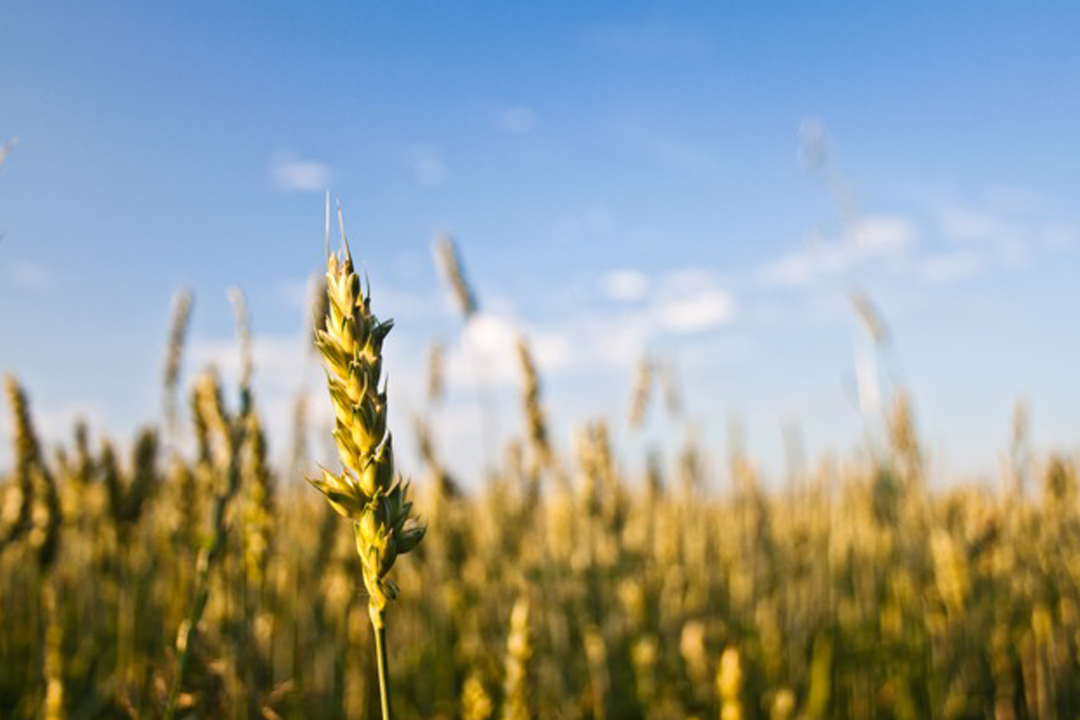
Reducing Food Waste in Foodservice
October 16, 2018 by Doreen Garelick, Dietetic Intern
Our intern Doreen attended a food waste summit for restaurants and compiled these tips to help food service operators redirect…
March 22, 2016

By 2050, 9.6 billion people will share our planet. Coming up with solutions to feeding the world – along with reducing environmental impacts – is one of the greatest challenges we face today. This series explores some of the challenges and sustainable solutions to feeding the world, starting with the sustainability of grains. And be sure to check out our other posts in this series: Rethinking Ancient Grains; Can Design Help Feed a Growing Planet?; and Taking Salad Outside of the Bag
Mapping Out The Landscape
Grains account for over half of the calories consumed by people around the world. Yet, over the last few decades, grain production has been narrowed down to a limited number of varieties. Experts agree that over the next 35 years, farmers will need to increase the word’s annual production of maize, rice and wheat to an estimated 3 billion tons. And this needs to be done on degraded lands, with less water, and in the face of climate change.
The Less Rosy Reality
The staples that feed billions of people today – wheat, rice, corn, and soybeans – come from annual plants. In other words, they must be replanted every year. Their production requires large amounts of fertilizer to maintain high yields, while eroding the soil, and providing little habitat for wildlife – all of which have adverse effects on our climate as a whole.
Furthermore, these annual grain crops are typically grown in monocultures, single crops repeatedly grown on the same land year after year. Rotating crops helps to restore nutrients, like nitrogen, to the soil. When crops are not rotated and nitrogen is depleted, other measures need to be taken – insert fertilizer.
What happens next is a continuous runoff of nitrogen and other chemicals from farmland into rivers and coastal waters, which can then trigger the development “dead zones”, or areas that that are depleted of fish or other marine life.
Monocultures can also cause crop vulnerabilities to insects, weeds, and other pests, which in turn can lead to increasingly intensive applications of insecticides, herbicides, and fungicides.
Moreover, some grains, like rice, require a lot of water, which is another cause for concern, especially in drought prone areas. And to top it off, Samuel Myers, a researcher at Harvard’s School of Public Health, predicts that in the future, the increase of carbon dioxide in the atmosphere is likely to produce higher yields of grains that have fewer nutrients.
Where do we go from here?
For starters, scientists are working hard to create perennial versions of our already popular grain crops (using both traditional plant breeding and genetic engineering). The more obvious benefit is that farmers won’t have to replant their crops every year, which means less fuel being burned in their tractors. And unlike annuals, perennials reduce soil erosion, use less fertilizer, preserve nitrates in the soil, and retain more water than some monoculture varieties.
Promoting drought-tolerant crops is yet another avenue that farmers and scientists alike, are exploring. Organizations like the International Crops Research Institute for the Semi-Arid Tropics are researching drought and pest tolerant crops that produce higher yields. They are also exploring overall better farm practices and ways of boosting policy support and market value.
Moving forward, we have to be smarter about how we grow and produce our grains. By definition, the transition to a more sustainable global food supply must include agriculture practices that increase yields, reduce environmental impact, and build climate change resilience. In the meantime, there are things that we as consumers can do to increase the diversity of grains consumed.
Stay tuned for the next part where we explore more sustainable grain options.

October 16, 2018 by Doreen Garelick, Dietetic Intern
Our intern Doreen attended a food waste summit for restaurants and compiled these tips to help food service operators redirect food waste from landfills.
Nutrition 101

Nutrition 101
September 26, 2018 by Doreen Garelick, Dietetic Intern
Ever notice headlines about rapid weightloss? Dietetic Intern Doreen Garelick looks deeper into a recent eye-catching headline to see if there's any truth behind it.
Connect
 Follow us on Twitter
Follow us on Twitter Friend us on Facebook
Friend us on Facebook Follow us on Pinterest
Follow us on Pinterest Follow us on Instagram
Follow us on Instagram Read our Blog
Read our Blog Watch videos on YouTube
Watch videos on YouTube Watch videos on Vimeo
Watch videos on Vimeo Connect with us on Linkedin
Connect with us on Linkedin Find us on Foursquare
Find us on Foursquare
Tweets by @SPEcertifiedBlog Search
Categories
SPE Certified Newsletter
Sign up for news on the latest SPE-certified venues, events and SPE updates.
We will never share your personal information with a third party.